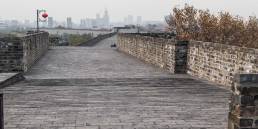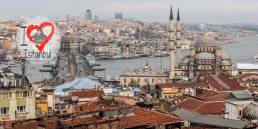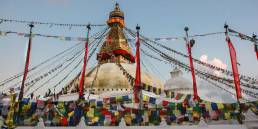What is happening in Burma?
It happened again, on February 1st, the Burmese military junta executed an unexpected coup détat threatening the already fragile transition to democracy in Myanmar. Yes, the Burmese woke up on Monday with the news of a new military coup And although military coups are the sad story that repeats itself in the Asian country, it is worrying that the latter has no prospect of being solved in the short term. Burma is at risk of going back to the past that everyone wished they had left behind. De nuevo, al borde del abismo.
The story began to forge last November, when Aung San Suu Kyi’s party won the elections massively. And that the Constitution, (modified in 2008 for this purpose), guarantees a quarter of the seats in Parliament to the military, as well as control of the most important ministries in the country: Internal Affairs, Defense and Border Affairs.

Suu Kyi and her party, the National League of Democracy (NLD), led the country for the past five years after being elected by voters in 2015, in the freest and fairest election the country had experienced in 25 years. (let’s remember that Burma has been a country that lived in a military dictatorship from 1962 to 2011). Although Suu Kyi was unable to become president due to a clause in the constitution (her late husband and children are foreign nationals), she assumed the newly created post of Councilor of State of Myanmar, a role similar to that of a prime minister or head of government. government, created for her.
The Military Government took power on the grounds of alleged fraud in the November general elections: alleging fraud without any evidence. Using this excuse, the police filed various charges against the elected civilian leader, including non-compliance with import and export laws, violating the national secrets law, and possession of allegedly illegal communication devices. Aung San Suu Kyi, who was initially in pre-trial detention, remains in detention at her residence in the capital, Nay Pyi Taw. Deposed President Win Myint was also charged in his case with violating rules prohibiting gatherings during the covid-19 pandemic. Meanwhile, Commander-in-Chief Min Aung Hlaing is in command.
Aung San Suu Kyi

It is true that the charismatic Burmese leader was better considered by the international community before her arrival in politics and the beginnings of the democratic opening of the country. She was an icon of the non-violent struggle for democracy and human rights. A muse who was awarded the Nobel Peace Prize.
“… Suu Kyi’s struggle is one of the most extraordinary examples of civil courage in Asia in recent decades. It has become an important symbol in the fight against oppression”
However, with the prestigious Nobel Peace Prize, just awarded in 1991, everyone expected a person more oriented towards respect for human rights, but this has not been the case since she became the de facto leader of her country, in 2016, Suu Kyi has found herself condemned by the very international leaders and activists who once supported her. Outraged by their tacit silence at the abuses and exodus of the Rohingya community from Myanmar due to military persecution and refusal to acknowledge that the Myanmar military has committed massacres. As many of you may know, the Rohingya are a Muslim-majority community who are denied citizenship by the Burmese authorities and live in a kind of “apartheid” in the state of Rakhine, bordering Bangladesh, where they are supposedly from.
The repression
Experts are not sure why exactly the military decided to act now, but everything seems to point out to the fact that that same day, Monday, the party would have started its second term, so this Monday’s session should have proceeded with the first session of Parliament, which in turn would have enshrined the electoral result. It is clear that the military was not willing for this to happen.
Since then, the citizens of Myanmar have mobilized and staged massive demonstrations and acts of peaceful civil disobedience throughout the country. The security forces have used live bullets against protesters, and there are several eyewitness reports of people being beaten and sometimes being shot while the army conducts house raids to arrest activists and protesters. Very worrying facts such as the blocking of communications, the arrests of journalists, and of course, the political leaders of the opposition. Since the coup on February 1, more than 536 people have died in the repression of protests in Myanmar, including more than 40 children, the escalation of violence against civilians is forcing many families to flee to neighboring countries seeking asylum.
Where is the international community?
I have a good Burmese friend who was actually the one who alerted us to the situation before social media was banned. He has lived in the dictatorship and knows it very well. He does not stop writing to us insisting that only with pressure and international help can something be achieved. He fears that everyone looks the other way, as so often happens, they know that if this happens, they will return to the reign of terror and dictatorship, progress, hope for the future, the most fundamental civil rights are over.

Together with the United Kingdom, the United States, the European Union, Canada and some of their partners in Asia-Pacific such as Japan and Australia, they have imposed sanctions against the Military Junta or its associated companies from which they obtain financing, reducing the funds for cooperation that They sent to the Asian country. The military controls the infrastructure and much of the country’s economy through two conglomerates: Myanmar Economic Holdking Limited and Myanmar Economic Corporation, worth several trillion dollars, with ties to 44 foreign companies, as estimated by one group of UN experts as early as 2019.
As world leaders watch the growing crisis in Myanmar and debate measures, the military defiantly assures that they are prepared to withstand sanctions and isolation after the coup. But is the population? Civilians, as always, will be the ones who will suffer the consequences most directly. And many families have left their homes outside the big cities to villages and monasteries seeking safety because they fear the worst.
Our experience in Myanmar
It is still very present in my life despite the time that has elapsed, I met the still named Burma back in 2010, just 4 years before it had officially opened to tourism. In 2008 we had to postpone it due to the Saffron Revolution because it was not recommend traveling there.
We found a fascinating country, almost intact in terms of tourism, which, as we all know, has many good things, but others are not so good. A diamond in the rough, full of possibilities for all those who wanted to contribute to building the country, the opening was palpable. We found a people, and I am concious it might sound like a cliché, really kind and friendly. We strolled alone through the Bagan temples cycling through the green peanut-strewn fields as the warm monsoon rain poured down on us. We contemplate the city of Mandalay from the top of its hill at sunset, with the Irrawaddy gleaming as if it were dragging diamonds.
It was an unrepeatable and enriching experience. And I have to say that in these years we have not lost contact with the people we knew then, they have repeatedly invited us to visit them and it was certainly something that we wish we could do at some point.
I don’t know where the solution might come from, but I sincerely hope that the situation can be solved and that the lives it has already cost have not been in vain. The Burmese have suffered greatly, and they deserve to live without the constant threat of a new dictatorship They deserve to live in democracy and freedom and to be able to offer a future to their children. Let’s not forget them.
Related Posts
The Great Wall of Nanjing (Ming city wall)
17 January, 2017
Hezarfen – Ahmed Celebi, story of a bird man
6 January, 2016
Bodhnath, Tibetan heart of Nepal
29 September, 2014










